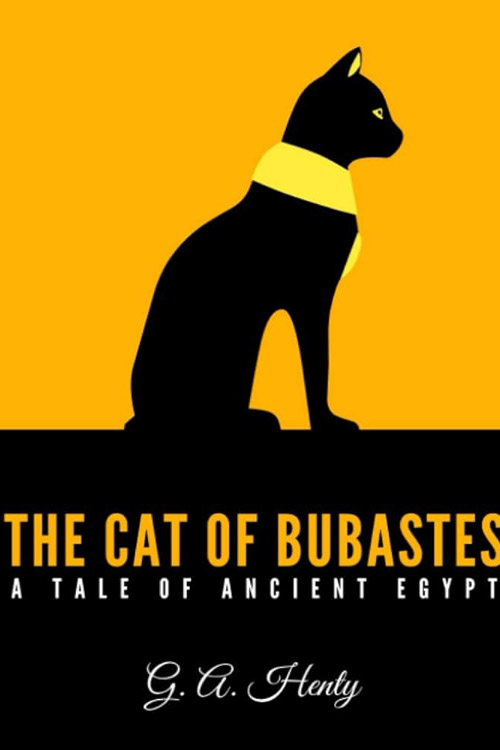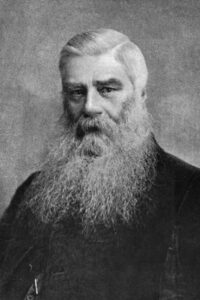
The Cat of Bubastes: A Tale of Ancient Egypt
After his father, the king of the Rebu, is killed in battle with the Egyptian army and the Rebu nation is conquered by the Egyptians, the young prince Amuba has carried away as a captive to Egypt, along with his faithful charioteer, Jethro. In Thebes, Amuba becomes the servant and companion to Chebron, the son of Ameres, the high priest of Osiris. The lads become involved in a mystery as they begin to uncover evidence of a murderous conspiracy within the ranks of the priesthood.
However, before they can prevent it, they are forced to flee for their lives when they accidentally cause the death of the successor to the Cat of Bubastes, one of the most sacred animals in Egypt. With Jethro as their guide and protector, the boys plan to escape from Egyptian territory and return to Amuba’s homeland.
Read or download Book
G. A. Henty
G. A. Henty was born in Trumpington, near Cambridge, but spent some of his childhood in Canterbury.
Biography.
He was a sickly child who had to spend long periods in bed. During his frequent illnesses, he became an avid reader and developed a wide range of interests, which he carried into adulthood. He attended Westminster School, London, as a half-boarder when he was fourteen and later Gonville and Caius College, Cambridge, where he was a keen sportsman. He left the university early without completing his degree to volunteer for the (Army) Hospital Commissariat of the Purveyors Department when the Crimean War began. He was sent to the Crimea, and while there, he witnessed the appalling conditions under which the British soldiers had to fight. His letters home were filled with vivid descriptions of what he saw. His letters impressed his father, and he sent them to the Morning Advertiser newspaper, which printed them. This initial writing success was a factor in Henty’s later decision to accept the offer to become a special correspondent, the early name for journalists now better known as war correspondents.
Shortly before resigning from the army as a captain in 1859, he married Elizabeth Finucane. The couple had four children. Elizabeth died in 1865 after a long illness, and shortly after her death, Henty began writing articles for the Standard newspaper. In 1866, the newspaper sent him as their special correspondent to report on the Austro-Italian War, where he met Giuseppe Garibaldi.
He went on to cover the 1868 British punitive expedition to Abyssinia, the Franco-Prussian War, the Ashanti War, the Carlist Rebellion in Spain, and the Turco-Serbian War. He also witnessed the opening of the Suez Canal and travelled to Palestine, Russia, and India. According to literary critic Kathryn Castle, Henty was a strong supporter of the British Empire all his life: “Henty … exemplified the ethos of the [British Empire], and glorified in its successes”. Henty’s political ideas were influenced by writers such as Sir Charles Dilke and Thomas Carlyle.






